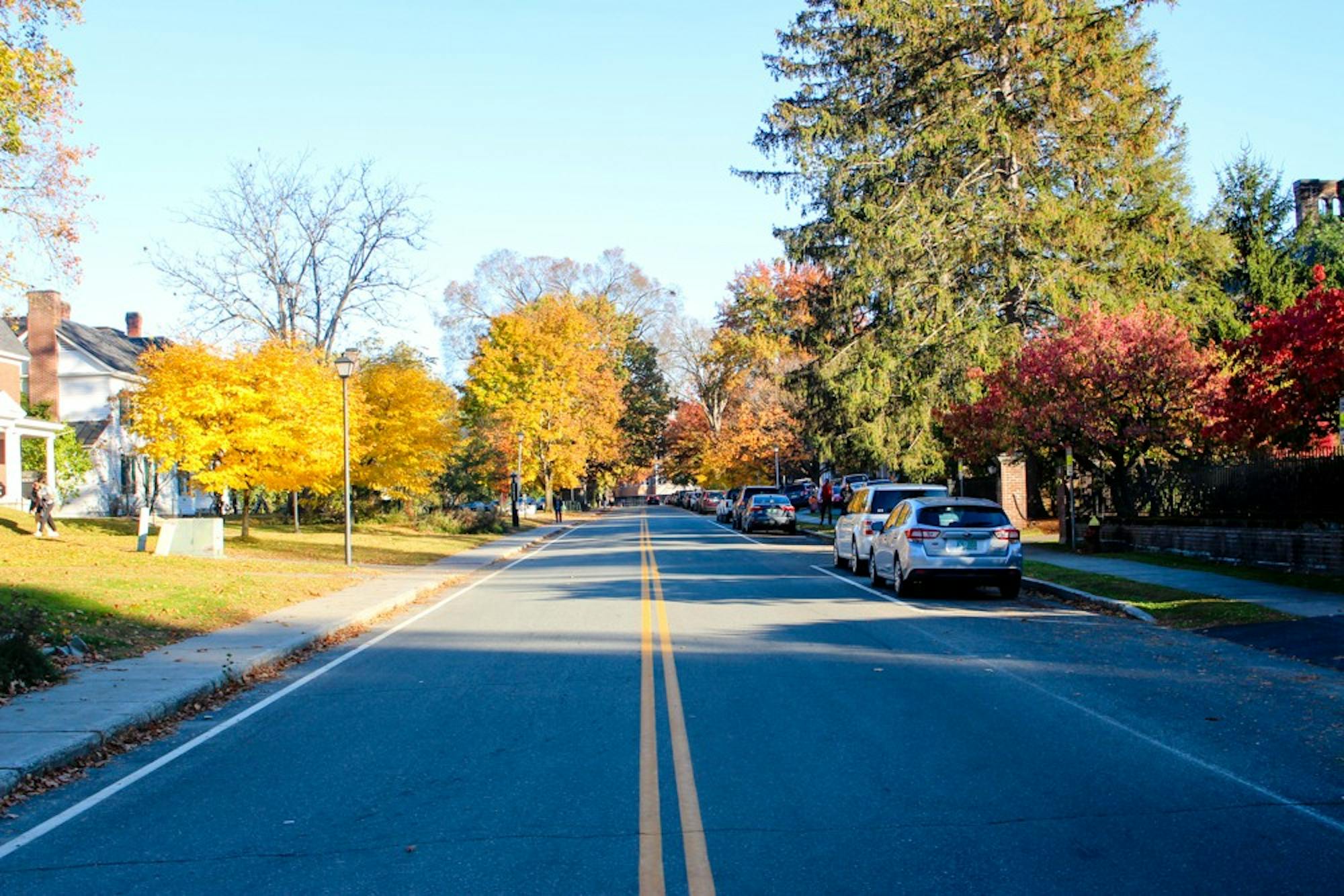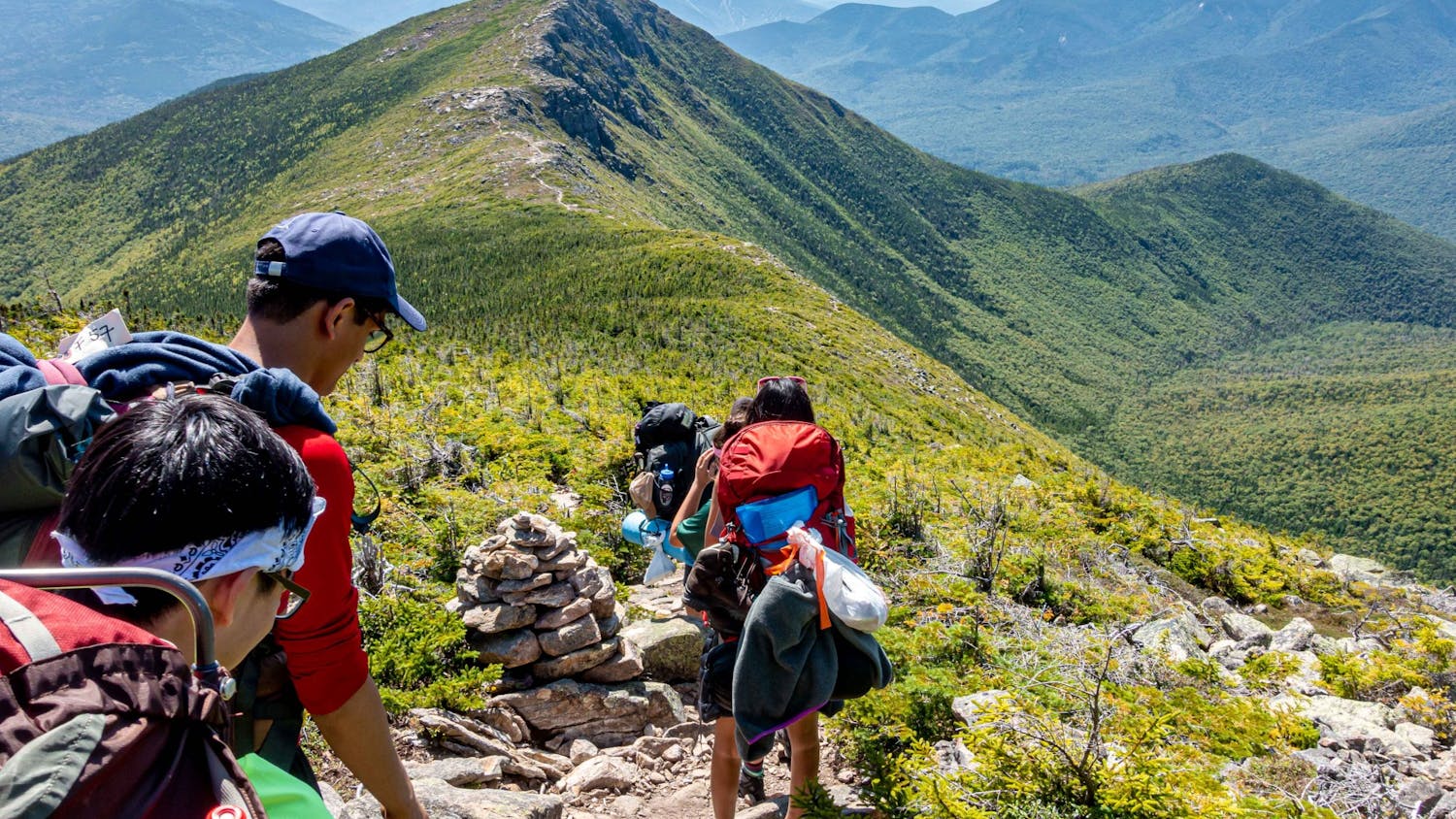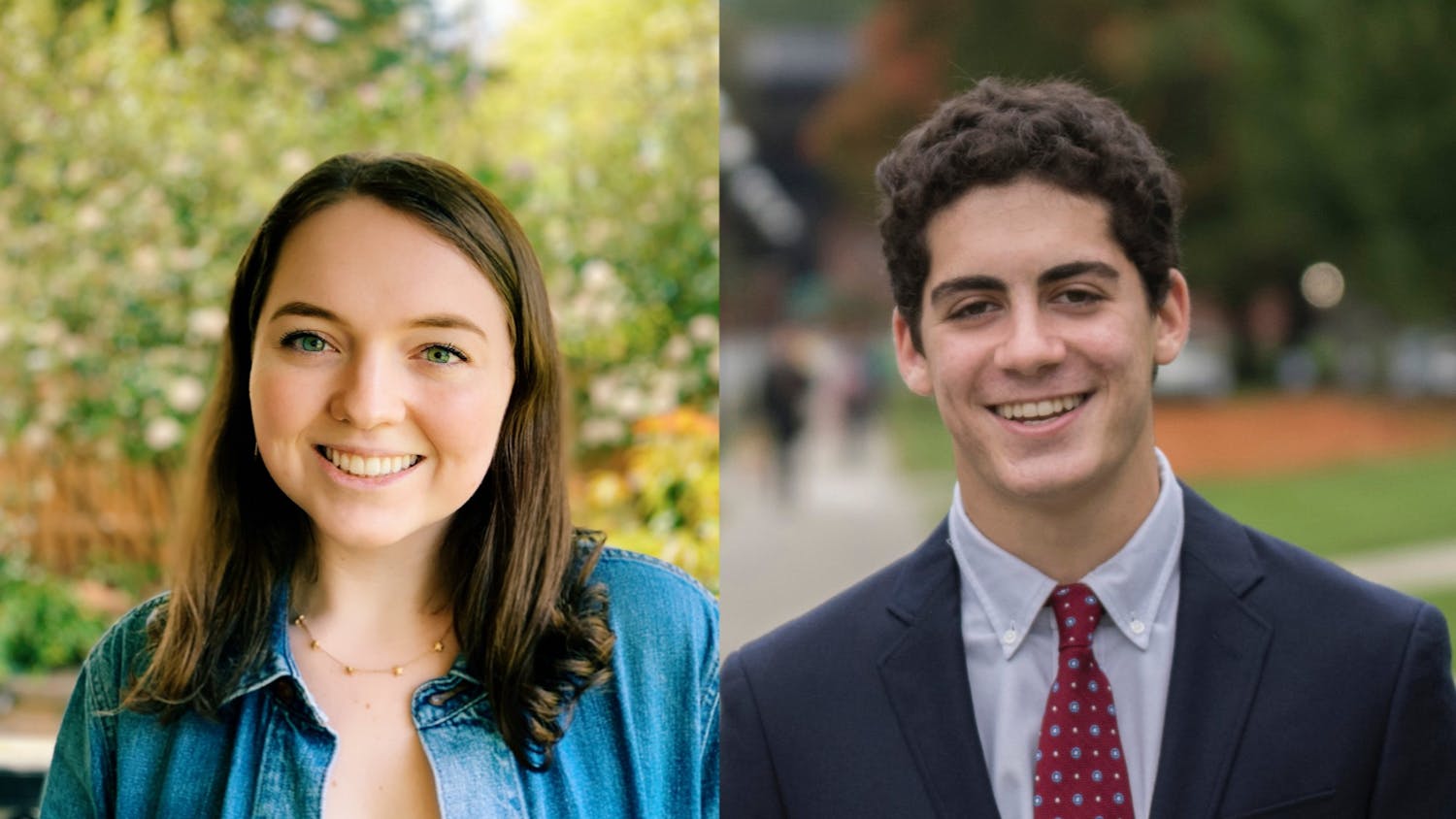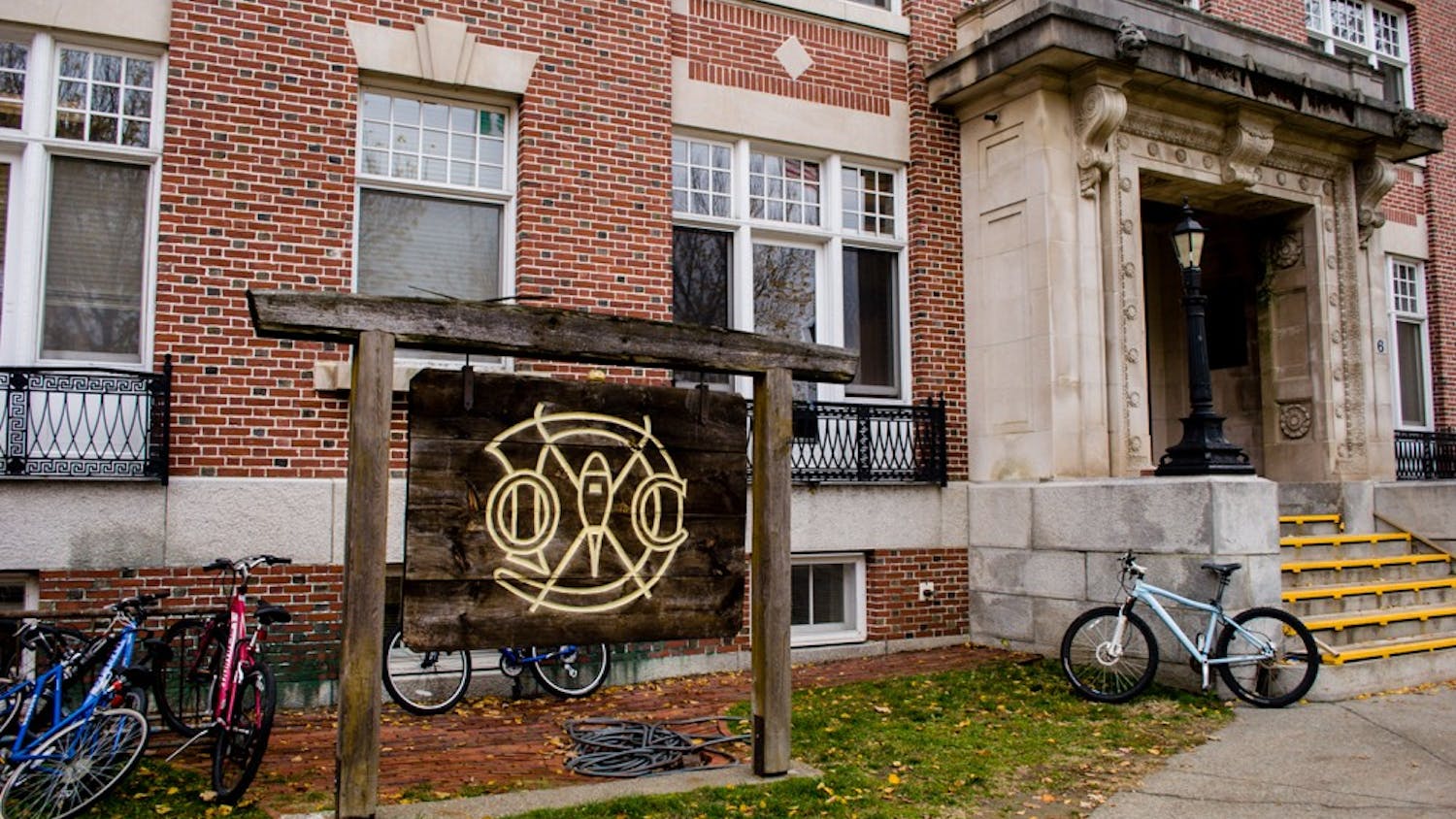New students were welcomed to campus a little differently this year. Rather than participating in the Dartmouth Outing Club’s traditional outdoor First-Year Trips, members of the Class of 2024 and new transfer students were grouped together and paired with upperclassmen Orientation Peer Leaders to engage in virtual activities introducing them to the College.
Students were contacted by their OPLs before Sept. 5. Following move-in — which took place on Sept. 8 or 9 for most freshmen — and until the start of classes, new students attended daily online meetings, open houses and information sessions.
Rachel Florman ’21, a New Student Orientation organizer and senior OPL, said that this year’s orientation was a hybrid between the typical Trips program and the normal orientation week program. Five people headed the program, including the two Trips directors Kellen Appleton ’20 and Jake Klein ’20, acting director of the Outdoor Programs Office Coz Teplitz, director of Greek life Brian Joyce and associate director of student involvement David Pack.
Groups of around 10 to 12 new students — a mix of freshmen, transfer students and engineering dual-degree program students — as well as two co-leaders, participated in orientation sessions together. The 230 OPLs served as mentors and activity leaders for new students, Florman said. In addition, senior OPLs worked as liaisons between the OPLs and the Office of Student Life.
Both OPLs and senior OPLs are set to receive a $500 stipend as compensation for their work. In contrast, the Trips leader position has traditionally been a volunteer one.
Gabby Mitchell ’22, who served as an OPL, said that leaders were given an extensive list of possible activities for their groups — including scavenger hunts, virtual escape rooms, online games and trivia nights — but were ultimately given broad leeway in designing their programming.
“We tried to think about the different activities that we enjoyed during [Trips] and converted those into the online format,” Mitchell said.
For example, she said that students in her group wrote emails to themselves that they’ll receive at the end of spring term, an activity similar to the letter-writing activity many students did during traditional Trips.
Some on-campus leaders also showed their orientation groups around campus via Zoom, Mitchell said.
“One of my friends got to run around campus doing a scavenger hunt, showed [the new students] different buildings and was able to stand outside their dorm window and say hi,’” Mitchell said.
Mitchell explained that the groups held sessions one to two times per day, and in addition to facilitating bonding games, OPLs were available to answer student-initiated questions.
Klein said the Trips program felt a responsibility to provide the incoming class with upperclassmen mentors. He said the OPLs were crucial in providing this peer support.
“It was a little bit of what trip leaders do, and a little bit of facilitating orientation activities like what the [orientation team] historically does,” Klein said.
According to Klein, the program’s student leadership — including OPLs and those who helped with planning, programming and OPL training — came from a combination of students originally appointed to the Trips directorate and other students pulled in this summer.
Florman explained that the Trips directorate was selected and onboarded in January. Meanwhile, the DOC did not determine that in-person Trips would be canceled until late May.
“People like myself put in a few months of work to make the traditional Trips program happen, but around March we thought we should start making contingency plans,” Florman said.
When the Trips directors and the orientation team were told that neither of the traditional programs would happen, Florman said many Trips directorate members began working on the new virtual orientation week program.
Klein said he was pleased with the overall success of the program.
“I think there was a reasonable dose of skepticism when all of this started happening,” Klein said. “On Trips directorate, we have a very engrained view of what welcoming the incoming class looks like, and we were all nervous that we wouldn't be able to execute what has worked for a while.”
Despite initial concern, Klein said that his team heard stories of OPLs bonding with their new student groups and new students staying on their Zoom calls beyond the allotted time slot.
He added that the timing of this year’s program allowed for additional mentorship and support that would not occur under the regular Trips and orientation format.
“Because OPLs were around during course selection and then orientation, they could be a little more resourceful and useful than they would be out in the woods,” Klein said. “Our best trip leaders turn into more all-encompassing student mentors, and I think we were able to encourage that a little more than we usually do.”
Gabriella Smith ’22, an orientation peer leader, said she hopes orientation will help students bond with each other after quarantine ends and that they continue to reach out to one another and their leaders.
“I think the program was a huge success, and I have the highest respect for those who were working to put this together,” Smith said. “I think for an orientation program that was online, this was probably the best they could have done by far.”
Sherry Dong ’24, conducting her freshman fall remotely from Shanghai, said she felt as though the familial spirit of Dartmouth was preserved in the virtual format, despite losing Trips.
Meghan O’Keefe ’24 said that orientation included some on-campus activities, such as “planting” paper trees. She added that some campus buildings were cast in green lighting to welcome incoming students — a “nice” addition.
O’Keefe said the orientation experience felt “distant,” however, compared to what could have been offered through the typical in-person Trips experience.
She said that despite the unusual circumstances, the College and OPLs did an excellent job of accommodating new students and making them feel comfortable, adding that she gives orientation leaders “a lot of credit.”
Eric Ramsey, the associate dean for student life, wrote in an email statement that the College hopes to return to the traditional Trips and orientation week format next year.





